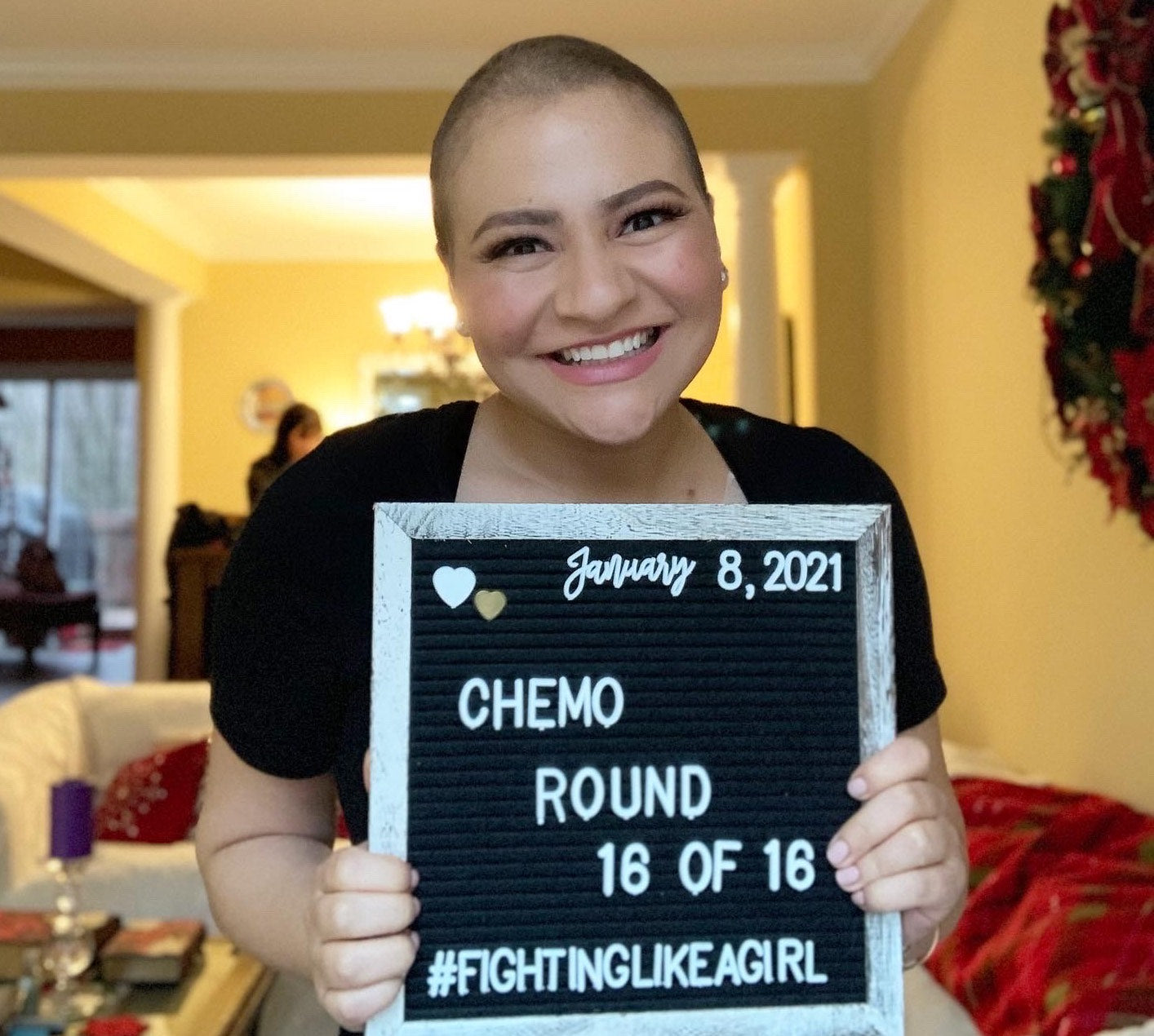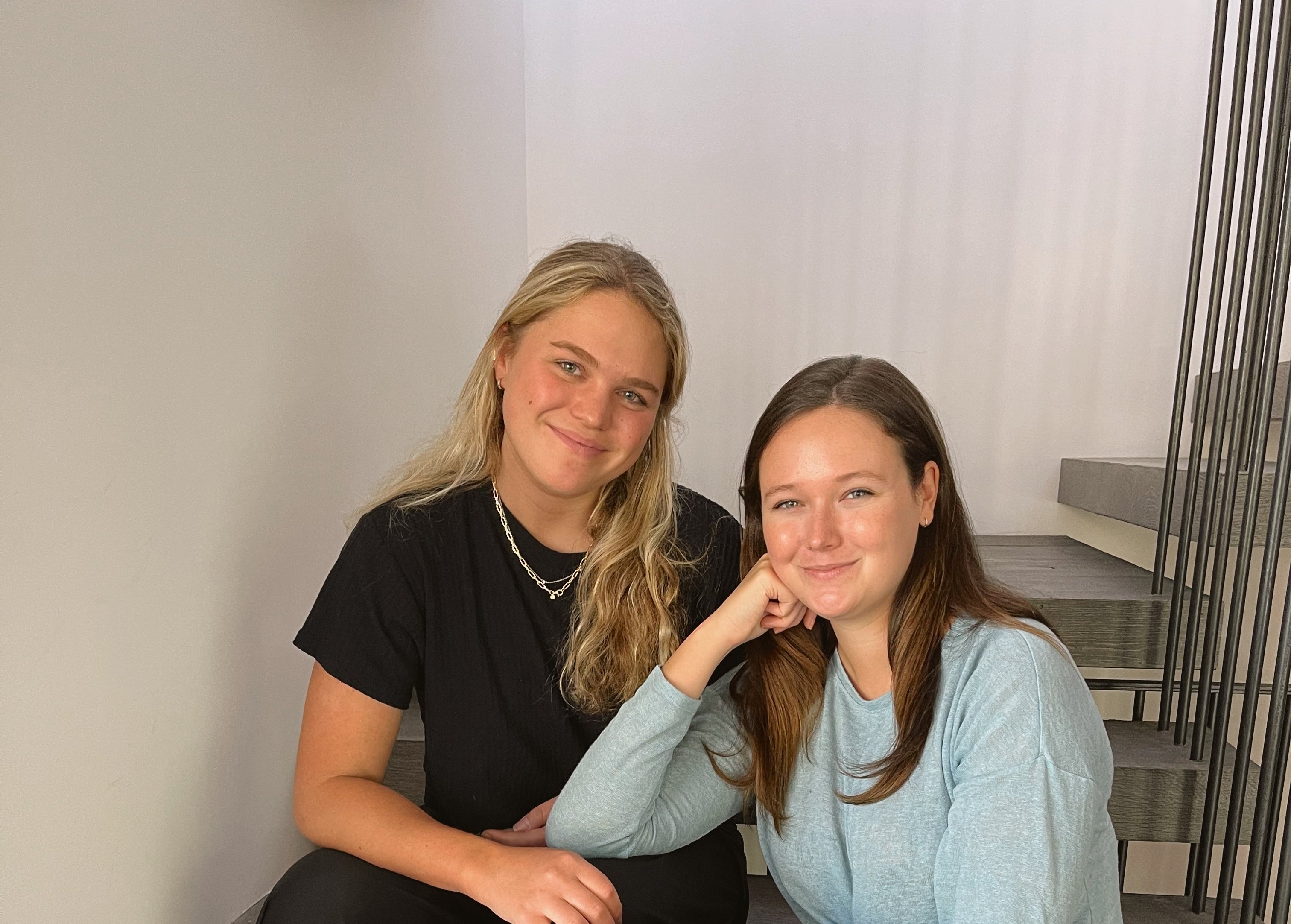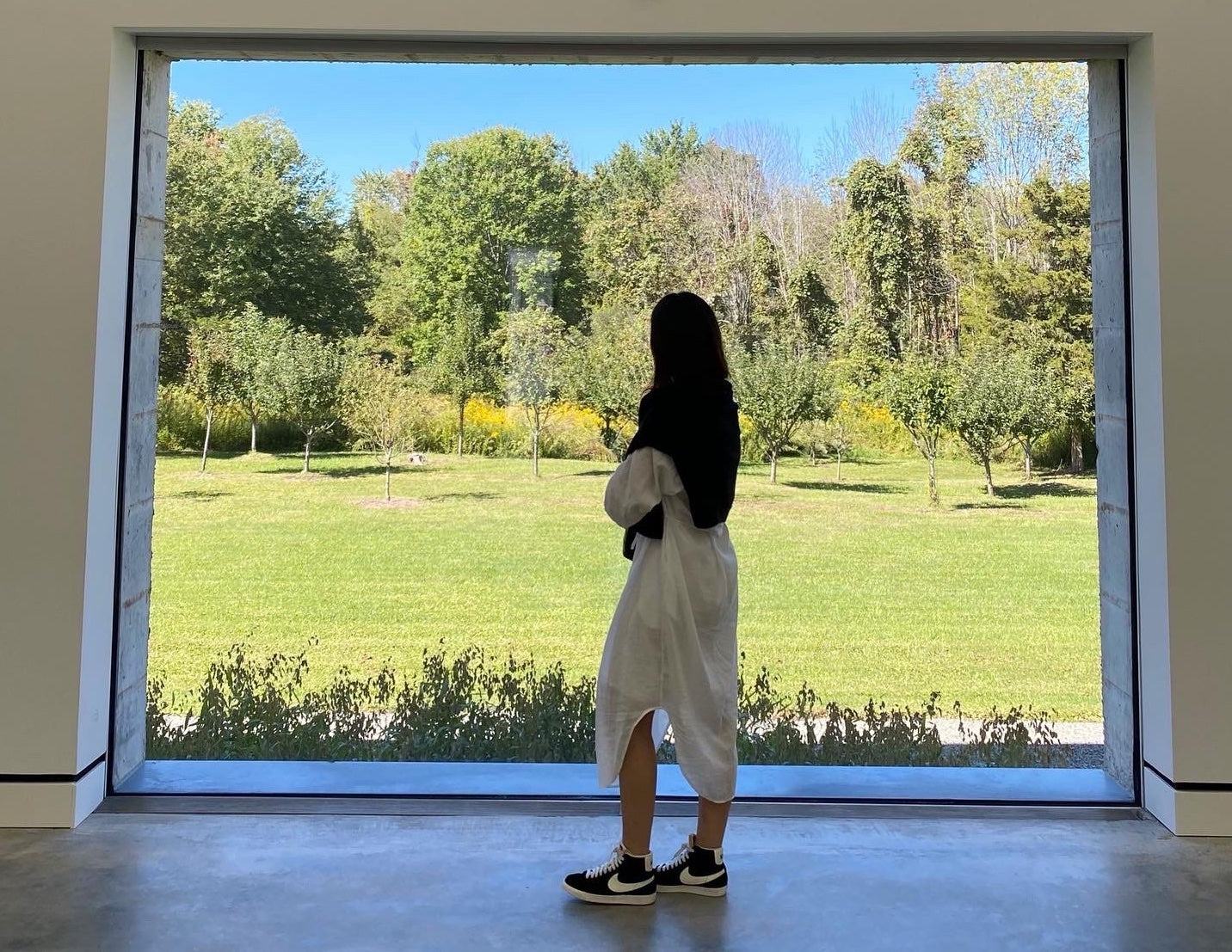We always want to be there for you during all stages of your life, including the more difficult parts like dealing with an unexpected diagnosis. This Sunday is National Cancer Survivor Day, which is a day to support & encourage everyone that has been affected by cancer no matter what step of the process they are in.
Today we have invited Vanessa Chapoy, a 25-year-old breast cancer survivor, to speak to us about receiving her diagnosis in the middle of the pandemic and how she has stayed busy during this difficult time. Vanessa was diagnosed with Invasive Ductal Carcinoma, which is the most common type of breast cancer and occurs in about 8 in 10 women. She has no family history of the gene changes or of breast cancer. This is quite common as about 70% of women who are diagnosed with this disease do not have any family history of it.

Vanessa is a trained actor and has been performing since the fifth grade. She is particularly active in the DC/MD/VA area (pre-COVID, of course!). She is currently an Account Executive at a large tech company and is a proud mother of 3 cats. She has been very vocal about her breast cancer experience on social media and on her blog Fighting Like a Girl. She is also an ambassador for For The Breast of Us, an inclusive breast cancer community for women of color. Keep reading to hear more about her journey!
K: How old were you when you were diagnosed with breast cancer?
V: I had just turned 24 when I felt a small meatball-sized lump. After two weeks of several doctor visits, ultrasounds, mammograms, and a needle biopsy, I was diagnosed with Stage 2a Invasive Ductal Carcinoma, ER/PR+, HER2-. Based on where my tumor was located and its size, my care team and I decided it was best to start with surgery. One caveat: My best friend was getting married the following month. So I decided to take a staged approach - start with a lumpectomy (shorter recovery time) and then eventually get a double mastectomy for peace of mind. A week later I had a successful lumpectomy. After my best friend’s wedding, I went through the egg freezing process, got my port placed, and started AC+T Chemotherapy as well as my monthly Zoladex injections. I finished chemo on January 8, 2021 and had my double mastectomy with direct-to-implant reconstruction. I am now on hormone therapy for at least the next 5 years.

K: Wow, that’s a lot to handle in a short time period and really admirable. How did you stay busy during recovery periods and chemo days? Was there anything that helped keep you motivated?
V: Okay, NOT to be super stereotypical but an acquaintance from high school reached out and offered to teach me how to knit! I have now knitted 2 scarves and a beanie! Granted, they aren’t very good, but it was a great way to keep me busy during my bad chemo days. I have also watched an absurd amount of Netflix, Hulu, etc. and actually compiled a list to share with fellow survivors to watch during surgery recovery/chemo/etc.
In terms of motivation, it comes in waves - as one can expect, this whole process has been super disruptive to my life. In total, I took 6 weeks worth of short-term disability and that doesn’t count all of my doctor’s appointments and sick days during chemo.
It was really difficult to stay motivated when I felt like I was falling behind everyone else in my life, whether it was at work or watching my friends complete huge milestones. I think what keeps me motivated (and acts as a kind of therapy for me) has been being transparent about my experience with cancer over the past year and knowing that sharing my story will be someone else’s survival guide. In terms of motivation for work, I am working from home indefinitely so I’ve started building a routine - getting dressed for work, putting on makeup (not that I have to but because I WANT to), drinking kombucha, and putting my phone away. Putting my phone away and keeping a list of my to-do’s has been EXTREMELY helpful (thanks chemo brain).
K: Sounds like you were able to try new things and develop your own routine to persevere during this difficult time. What were some challenges you faced?
V: I have always been an anxious person who likes to be in control. Naturally, it was really hard for me to accept that I was no longer in control - that I couldn’t just wish for the cancer to go away. One thing that helped me feel slightly more in control was knowledge - learning everything I could about my pathology report as well as what all of my treatment options were. I felt like I was back in school the day my surgeon and nurse navigator sat me down with a big fat binder full of my pathology report, definitions, resources, a place to keep my medical team’s business cards, and tons of other information. It was super overwhelming but it was a much better place to start learning rather than googling everything (please never google anything when it comes to your diagnosis - this is a terrible idea).

K: It’s always hard not being in control when you want to be. On your blog you talked about entering early menopause - can you elaborate on what that felt like? Also, were there any other symptoms you weren’t expecting?
V: Ah yes menopause - to be clear, the menopause is temporary. It will last only as long as I am on hormone therapy, which will be for the next 5 years. It’s annoying whenever I have any sort of doctor’s appointment and the provider looks at me stunned when I tell them I haven’t had a period since August. You would think they would write a note at the top of my chart! I was not expecting a ton of things: long-term chemo brain (brain fog), hand-foot syndrome, mouth sores, losing ALL my hair (not just on my head), feeling zero sensation in my breasts and armpits, touching my breasts to discover they are COLD, etc. I don’t think the idea of going into menopause really phased me once I was told it was temporary. The only aspect related to that which stressed me out was about my fertility.
K: Oh wow, those are some very unexpected symptoms, but at least the menopause is temporary! So then, I know this is a personal question, but how does treatment affect your plans to start a family?
V: This was the first question I asked my medical team after learning of my diagnosis. I eventually want to have a family. I was told that if I ended up needing chemo (which I did), I would want to consider speaking to a fertility specialist. When I spoke with the fertility specialist, she explained that since I am young, I would likely have little trouble conceiving naturally as long as I am on lupron or zoladex during chemo. However, egg freezing is always an option as a form of insurance. I talked to my oncologist about it and she completely agreed that I should do the egg freezing. It’s weird though because now I have time restrictions on when I can have kids. Not that I was planning on having them soon, but I will not be allowed to start trying until at least February of 2023 (two years of taking both Zoladex and an AI). Even when I do decide to have kids, I am only allowed to take off 1-2 years from my hormone therapy before I have to get back on it.
K: After going through treatment and multiple surgeries, do you see yourself differently?
V: I have come to learn to appreciate my new body, but there have definitely been times where I looked in the mirror and started to sob. After chemo, I had gained around 20 lbs from all the steroids, had a bit of peach fuzz on my head, and huge scars on my breasts. I felt like an abandoned cabbage patch kid under a bed. I now get super anxious whenever someone I don’t know comments on my hair like ‘nice haircut’ or ‘I wish I could rock short hair’ because I didn’t volunteer to have my hair at this length. I never know what to say. Do I say ‘thanks - chemo really brought out the curls!’ or just be polite and say thanks? I like how it looks but it also reminds me of all that I’ve been through. I also hate looking at pictures of me pre-diagnosis. I feel ashamed and betrayed by my body - I wonder to myself if the cancer was already inside of me when those pictures were taken.

K: You went through so many changes so that is totally understandable. Do you think your definition of womanhood or female empowerment has changed at all after undergoing surgery and treatment?
V: As someone who had very large breasts that gave her back pain prior to surgery, I didn’t bat an eye when I was told I needed surgery. I gladly told the surgeon to take them away. I do struggle with the idea that I will never be able to breastfeed and that I will feel shame when I see my friends breastfeeding their children, but I know that that doesn’t make me any less of a woman. I have witnessed first hand the beauty and positive impact of female empowerment. I recently attended a For The Breast of Us retreat for survivors of color and we were constantly lifting each other up and giving each other the authentic validation we each needed to hear. Inclusive female/women/womyn empowerment is linking arms and extending your hand to lift the next person up with you. Inclusive women empowerment is not leaving anyone behind.
K: That sense of inclusivity and community is so important especially when you’re young and are still discovering yourself. What was it like connecting with other women who are going through a similar situation as you?
V: Finding a community of other young adult cancer survivors has been a true godsend and really one of the only ways I survived this past year. They are everything to me. Let me make one thing clear though: I am NOT grateful for cancer. However, I am grateful for the people that have been introduced into my life because of it. I have found my people that accept me for me.They get it cause they are going through it too.I feel incredibly blessed to have these women in my life. They raise me up when I am down and I feel pure joy when I am with them.
To further connect with Vanessa you can find her on Instagram @vanessachapoy! The team at Knours is cheering on everyone going through this difficult fight. It is always challenging having to navigate through something so unexpected, but you are doing your best and you WILL get through it.






Leave a comment
All comments are moderated before being published.
This site is protected by hCaptcha and the hCaptcha Privacy Policy and Terms of Service apply.